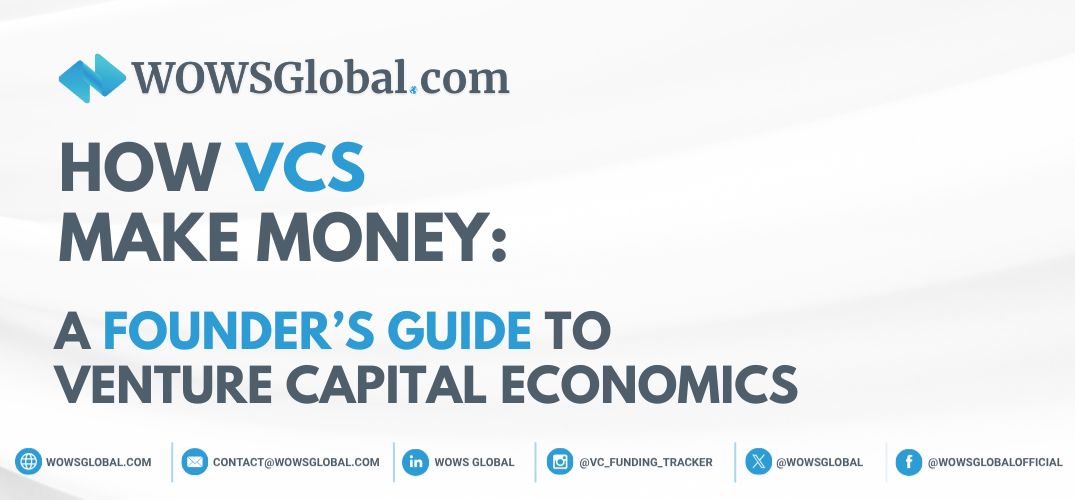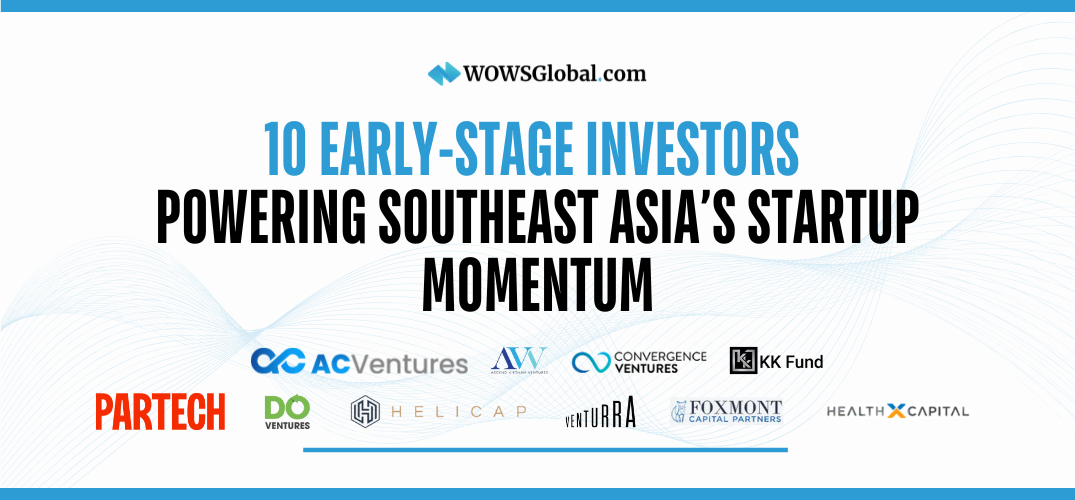The Things We got Wrong About Fundraising
Fundraising for Founders Funding Funding for Founders Fundraising Rounds


Fundraising too early
Having a great idea or a concept is the catalyst for founders to launch their new venture. However, ideas without action mean nothing. Investors are not looking to pay for ideas. The truth is, that “killer idea” you have is just the first step on a long journey to establishing a successful company.
What investors are looking at is a startup that can show proof of concept, provide early results, and most importantly, have a realistic long-term plan. One that details how they intend to reach their goal of becoming a successful, established entity.
This means founders need to be fundraising ready before they seek out potential investors. It is vital that you have some leverage to negotiate with. When it comes to negotiations, the earlier a founder is in their company’s development, the more equity they need to be prepared to give away.
That brings us to a very important question:
When is the ideal time for founders to look for funding?
This is not an easy question to answer because it involves a variety of factors such as:
- Is this your first fundraising attempt?
- What type of track record do you have?
- What is the status of your project, product, service, and team?
- What is the size of your overall opportunity and the market sector you are tackling?
To help founders who are preparing for their first foray into funding it is worthwhile waiting until they have either an MVP (Minimum Viable Product) for market testing or a decent prototype.
This is because founders need something tangible to offer investors and in fundraising parlance that means putting some “skin in the game”. Being in the position to show you already have something to offer will make it far more likely that investors will take you seriously. Just as importantly it should mean that fairer terms are offered.
There is another fundraising point that needs strong consideration. Founders should not look for funds if they have sufficient money to progress their business without outside funding. This is because further development and progression of your product or service will put you in a far stronger negotiating position when it is time to seek needed funds.
Fundraising too late
Conversely, do not leave it too late to raise the funds necessary to progress your company in a structured and manageable way. Founders should have in place a clear business plan, one that clearly outlines their next milestone, how long it will take to get there, and the amount of money required to achieve that.
Do not let these projections slip from your mind. This is easier said than done because building and progressing your business means you will be working day and night. Founders have a huge amount of tasks to juggle if they are to gain traction and keep the company moving forward.
Raising the required funds will not simply drop into your lap. This is because you are asking investors to part with their money and you are not the only founder doing that.
Investors receive a huge amount of pitch decks and inquiries about fundraising every week so founders need to play the numbers game. Getting in front of potential investors is no easy challenge because estimates show that founders only have between 10 and 20% of getting that first meeting.
Even securing the first meeting is just the beginning, you will then need subsequent meetings before the matter of a terms sheet is even raised.
With such a low investor meeting rate being achieved this means you need to cast your net wide by leveraging connections and/or making lots of cold outreach calls. While that net needs to be cast wide it also needs to be focused.
Founders need to concentrate on the kind of investors who will be interested in investing in the business sector, the type of product or service you offer, and the amount/stage of funding you are at (i.e. Seed, Rounds A or B).
Founders need to give themselves breathing space to secure the necessary funding. With that in mind and you have 12 months of runway left you should give yourself between 9 and a (minimum) of 6 months to achieve your fundraising goals.

Raising the right amount of money
This is really down to some accurate forecasting and building in a percentage of fat as a cushion. When looking for funds a good rule of thumb is to work out the amount needed to provide you with 18 months of runway to reach your next milestone
By raising too little you will be constantly seeking to go through the fundraising process during this runway. That is not good for you, it is also not a great sign for investors.
So, surely the answer is to raise as much money as you possibly can – Wrong!
Raising far more money than you need is worse than raising too little! This is because you are selling yourself short by diluting far more of your company ownership than is needed.
Accepting too much money is also putting unnecessary pressure on yourself and your company’s progress. Along with the ownership dilution issue, the more money you raise, the higher the ‘expectancy’ bar becomes. Investors will expect to see far quicker progress and in many cases, they will expect faster returns.
Raise funds but not on bad terms!
This is a crucial point that all founders must avoid when concluding their fundraising journey(s) and is particularly valid for first-time founders.
The fact of the matter is that your company valuation or the amount of money you are given by investors is often the thing that hits the headlines. It is what most founders, the media, and investors publicize. However, founders need to realize that it is the terms of the deal that are far more important to founders.
Founders need to understand that in the fundraising world it is not uncommon for investors and VC firms to craft term sheets that are loaded in their favor. It is often confusing for a founder to know whether or not they have received what is known as a “clean” term sheet.
A clean term sheet is classed as one that does not include clauses or terms that are widely considered “investor-favorable” terms.
It is often the case that first-time founders make the mistake of accepting unfavorable term sheets during Seed or Series A funding rounds. Two major factors come into play here:
The first relates to a founder’s inexperience of not fully understanding what all agreed terms really mean. The second comes with the fact that founders are simply eager to secure funding and get to work on their idea and company development.
This makes it imperative for founders to not only educate themselves on the ins and outs of the fundraising process but also to seek assistance from trusted advisors and legal partners. There is a significant reason for stating this because the first terms that founders agree to sets a precedent. Such terms are also likely to be given to later investors.
Agreeing to such unfavorable term sheet clauses can lead to a founder losing control of their company or falling foul of payout structures upon exit at a later date.
This leads us to the final and potentially most important factor that founders get wrong about fundraising:

Trying to go it alone during the fundraising process
It may seem to first-time founders that the most appropriate way to go about fundraising is to keep things completely ‘in-house’. Admirable that may be but it is not the most effective approach.
Founders need to leverage all of the assistance they can get. Not only will this save time, but it will also add invaluable expertise to their fundraising efforts.
WOWS Global is one such company that is ready to assist. We have built an end-to-end digital ecosystem that unifies startups with existing and potential shareholders and we are ready to assist founders along every step of their startup journey.
When it comes to your fundraising initiatives, WOWS will help guide you through such things as the right valuation, pre-and post-money, what terms are right for your company by deep-diving into the numbers, and ensuring detailed due diligence as well as correct legal requirements are covered.
To avoid the unnecessary pressures that going it alone during fundraising can bring please reach out to us for a free, no-commitment discussion at: contact@wowsglobal.com
Related Posts
-

Startup & Venture Capital VC Funding Founder IPO
How VCs Make Money: A Founder’s Guide to Venture Capital Economics
Venture capital isn’t a black box. Learn how LPs, GPs, fees, carry, and portfolio math actually work, then frame your pitch as the fund-maker with a credible exit path. -

SEA Early Startups Funding VC AI in Southeast Asia
Who’s Funding the Future? 10 Visionary VCs Driving AI Innovation
Explore 10 standout venture capital firms driving Southeast Asia’s AI-first startup ecosystem, from early-stage champions to fintech and deep tech backers. -

SEA Startup & Venture Capital Seed Funding
10 Early-Stage Investors Powering Southeast Asia’s Startup Momentum
Discover the rising early-stage investors powering Southeast Asia’s startup ecosystem. From Vietnam to Indonesia and the Philippines, these funds are writing meaningful cheques, backing standout startups, and offering founders the mentorship, networks, and sector expertise needed to scale from idea to impact. -

Early-Stage Investors Funding Funding Round Fundraising for Founders Investor
Shh! Don’t Share These Fundraising Insider Secrets
Startup founders need to fasten their seatbelts and prepare for a roller-coaster ride if they are to achieve success. It is a straight fact that founders will find themselves wearing many hats to get their venture up, running, and thriving. -

Fundraising for Founders A - Z of Fundraising Fundraising
A-Z of Fundraising for Founders (Part: 5 T-Z)
Founders of startups have a lot to contend with as they formalize their ideas, turn them into reality, and then proceed to grow their business healthily. -

Fundraising for Founders Fundraising Funding for Founders
The A-Z of Fundraising (Part: 4 O-S)
Founders of startups have a lot to contend with as they formalize their ideas, turn them into reality, and then proceed to grow their business healthily. As you progress, the world (and art!) of successful fundraising will become more and more important. Similar to all business sectors, startup founders will encounter fundraising abbreviations, acronyms, terms that speak for themselves, and others that are far more obscure. To help you grasp exactly what these terms mean, here’s a comprehensive A-Z of fundraising from WOWS Global. This handy reference guide will help every founder talk the fundraising talk with confidence. Because we are digging deep to deliver everything related to fundraising this guide will be split into easy-to-read parts. This is part 4 covering the letters O to S:
